| Last summer when I tweeted my post Why aren’t I reading more books by women?, someone commented that she didn’t read as many women as she’d like as her focus was Australian and New Zealand writers. While I must confess to a failure to review New Zealand writers of any gender, I’ve collected a few Australians in the last couple of years. What better prompt to give them another shout than Australia Day? |
Sun scorching the delicate skin of their freshly-shaven heads, ten young women dressed in heavy old-fashioned outfits and ill-fitting boots march, tramp and stumble through the scrub and dust of an abandoned Australian sheep farm for two hours, eventually coming to a stop at a six-metre high electric fence. Although still drowsy from the drugged state in which they were brought there, the message is clear: there’s no escape. And just in case they’re in any doubt, their guard jostles a random woman against the fence, severely burning her arm.
Described by the publishers, Allen and Unwin, as “an explosively provocative exploration of contemporary misogyny and corporate control by one of Australia’s most acclaimed writers”, The Natural Way of Things is a disturbing, but highly readable, novel.
#
Frederick Lothian, former professor of engineering, peruses the obituary notices in the local paper, surrounded by defunct electricals and beautifully designed modernist chairs. His daughter, Caroline, is furious that he hauled these impersonal items to his new home in a retirement village, but threw away her mother’s clothes soon after her death two years before. Although that might be the least of what she is angry about: Fred hasn’t been much of a father, or husband, or human being.
With its sympathetic, but deeply flawed and wounded characters, Extinctions brings a refreshing honesty to family tragedy in a manner that’s somehow gloriously uplifting. This is also the story of the tragedy of the Australian nation, built on a white invasion that almost saw the extinction of the Aboriginal blacks.
| Lucy Treloar’s debut, Salt Creek, also addresses Australia’s shameful history. Hester Finch’s father uproots his family from their comfortable life in Adelaide to a ramshackle house in the Coorong, where he tries his hand at dairy and sheep farming. Despite his apparent charitable attitude towards the indigenous people, including taking in a boy to educate, Mr Finch is also unaware how his farming practices are damaging the ecosystem on which they depend. |
Another two novels focus on characters with stressful jobs in human services:
Jennifer Down’s Our Magic Hour is an engaging character study of a young woman more adept at caring for others than herself.
The middle child of warring parents – an alcoholic father who beat them all and once broke her nose, and a narcissistic mother with a diagnosis of manic depression – twenty-four-year-old Katy is a social worker specialising in child protection, but her responsibilities don’t end when she leaves the office. In between propping up her mother and younger brother, Bernie, subsidising his rent as well as his drug habit, she tries to live a normal life of parties, drink and drugs, while supporting a grieving friend. Her boyfriend, Nick, tries to support her, but he has his own stressful job as a paramedic and Audrey’s ambivalence about her vulnerability makes them squabble. At work, her manager is sympathetic but, instead of suggesting paid time off to recuperate, grants her leave of absence to look for another job. Her GP, while giving her a thorough physical check-up, doles out a prescription for temazepam instead of referring her for psychotherapeutic support. As life feels progressively harder, Audrey fears she’ll end up as disturbed as her mother.
#
Terry is an experienced primary school teacher, popular with pupils, parents and the rest of the staff. But Laurie, the new acting principal, bristles at his intuitive laid-back style. As a much younger woman in a senior position, she’s conscious of the need to assert her authority right from the start; unfortunately, her approach rubs everyone up the wrong way. Alarm bells start to ring when she catches sight of Terry at a student’s house in the evening, contrary to child safeguarding policies.
Author Suzanne Leal is a lawyer experienced in child protection, and she deals with a disturbing issue in a sensitive manner. Highlighting the pressures and complexity of the teacher’s role, The Teacher’s Secret would be a good choice for book groups.
I’m sure I could find connections between my two Australian novels if I dug deeper but, as it’s a while since I’ve read them, I think they can bear to stand alone:
#
Since sharing a house in their student days in Canberra, Lotte and Eve have been able to tell each other anything. Both only children, they bonded like sisters, despite their diverging interests: Lotte’s passion for astronomy; Eve’s for mountain biking and constructing soundscapes. They have buttressed each other through the breakup of Eve’s relationship with the charismatic narcissist Nate, Lotte’s marriage to Vin and the death of her mother but now, in their late 30s, they’re estranged.
We first meet the women in the near-enough present day (2015), each confronting a devastating situation but unable to call upon the other for support. Lotte is returning to Australia after a five-year research job stargazing in the Atacama desert, her marriage over and facing a diagnosis of the cancer that killed her mother. Wracked with grief and self-recrimination, Eve has abandoned small town life to take her tent to the coast, despite the winter weather’s unsuitability for camping. Melanie Joosten’s Gravity Well is a story of friendship and betrayal.
Have you read any recently-published novels by Australian women I could add to my list? If you’d like to know more about any of the seven I’ve featured, click on the title to go to my full review.
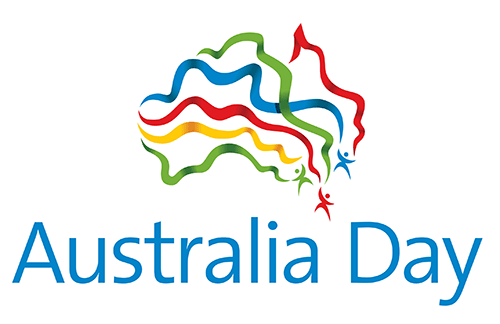
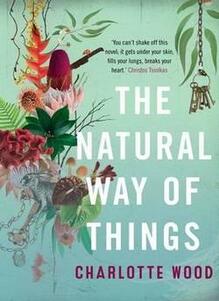
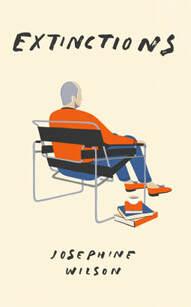
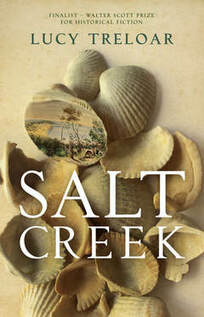
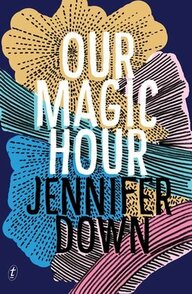
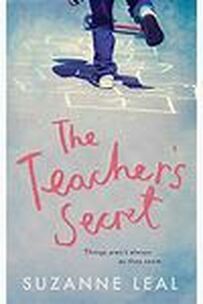
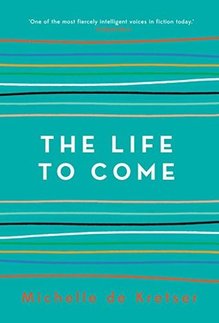
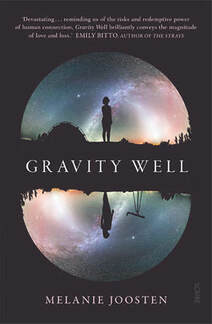





















 RSS Feed
RSS Feed





















